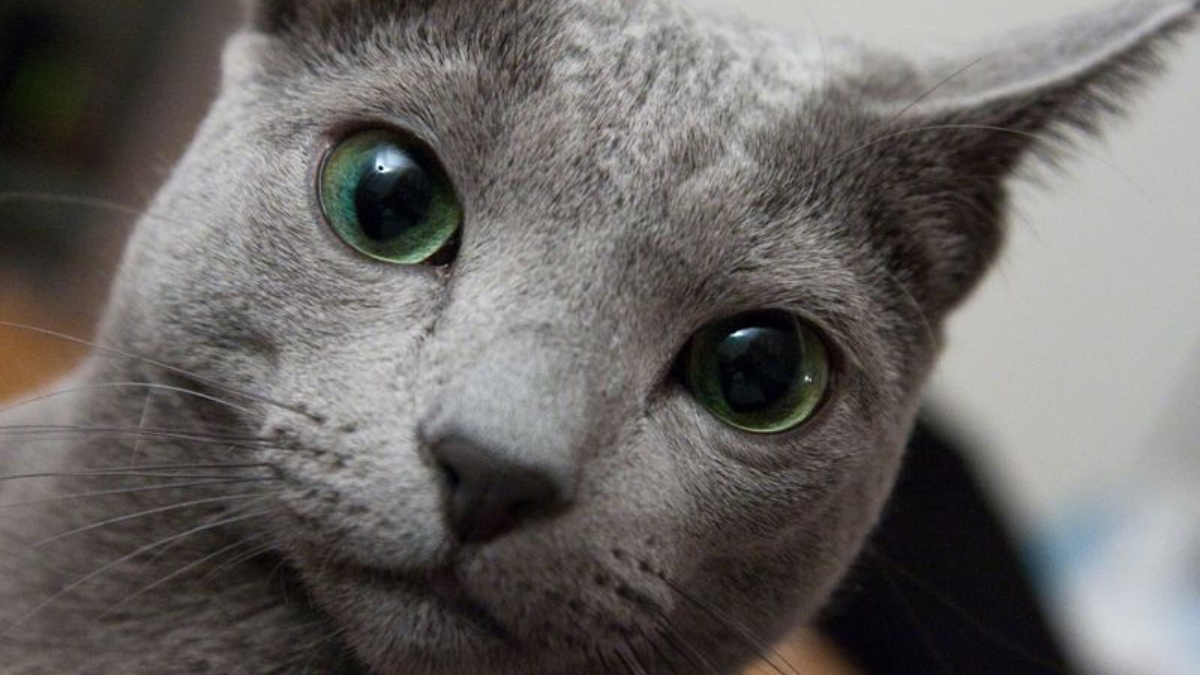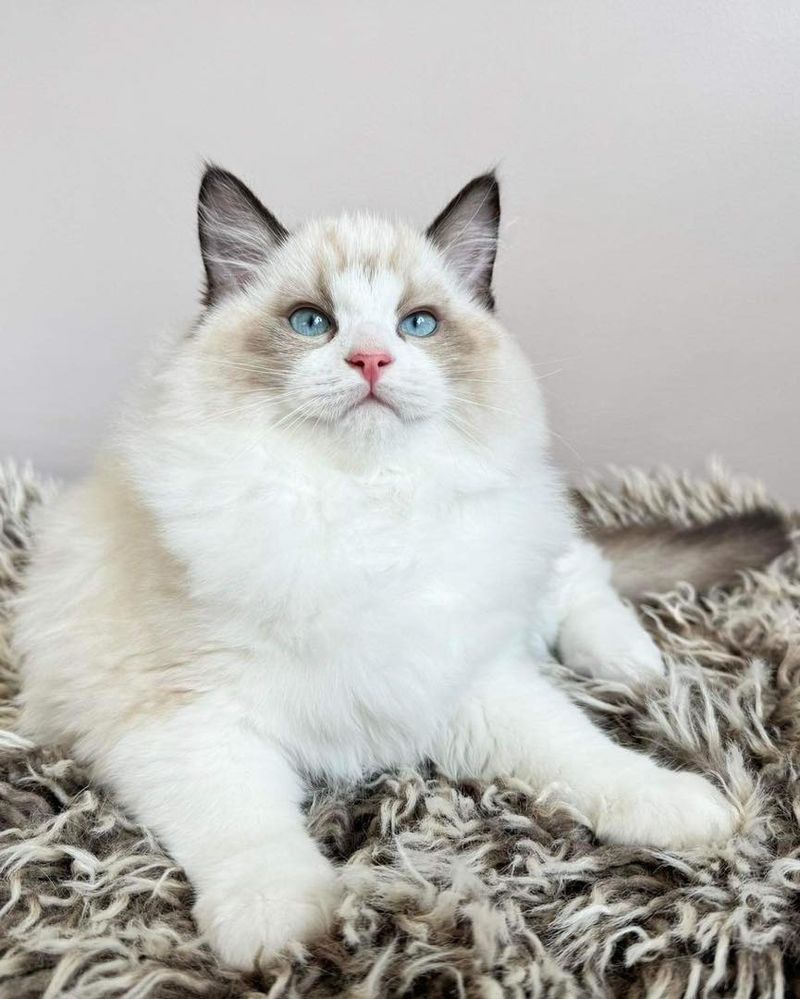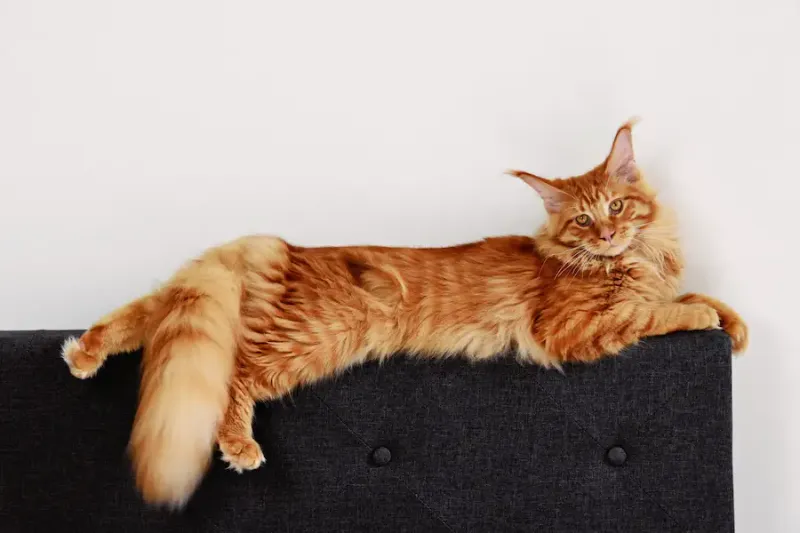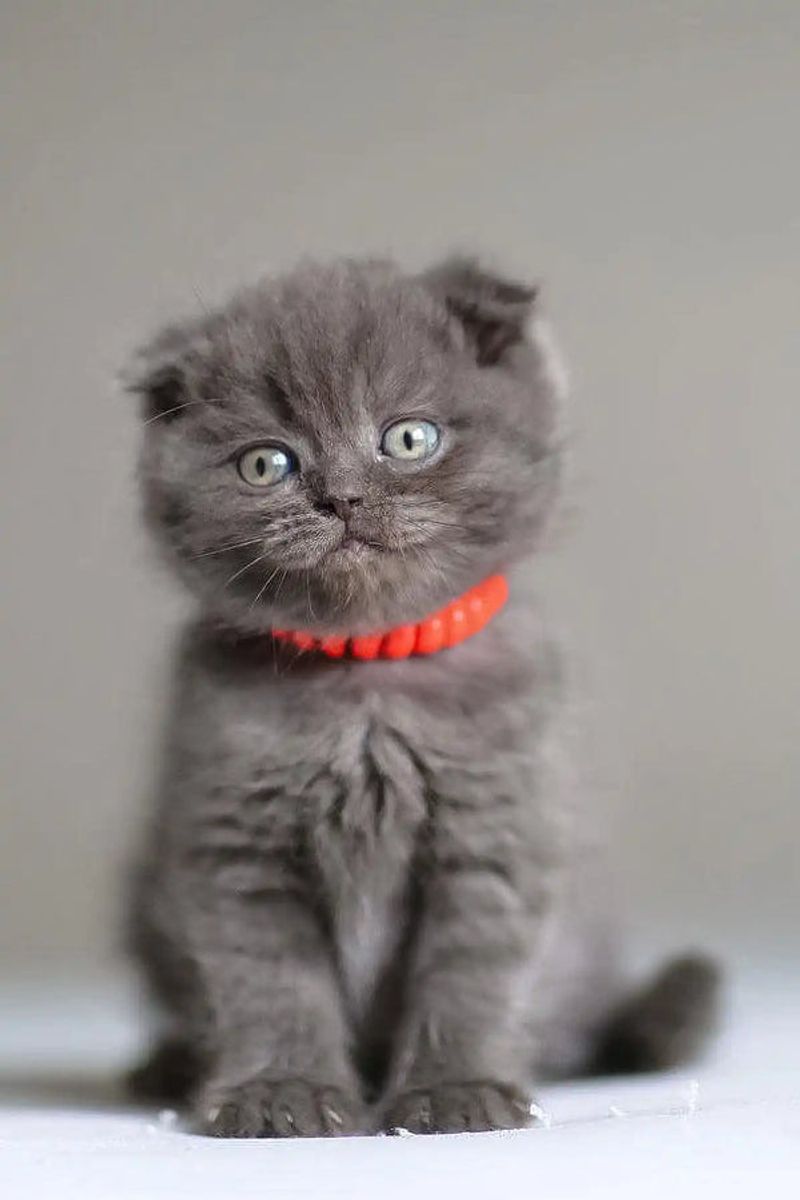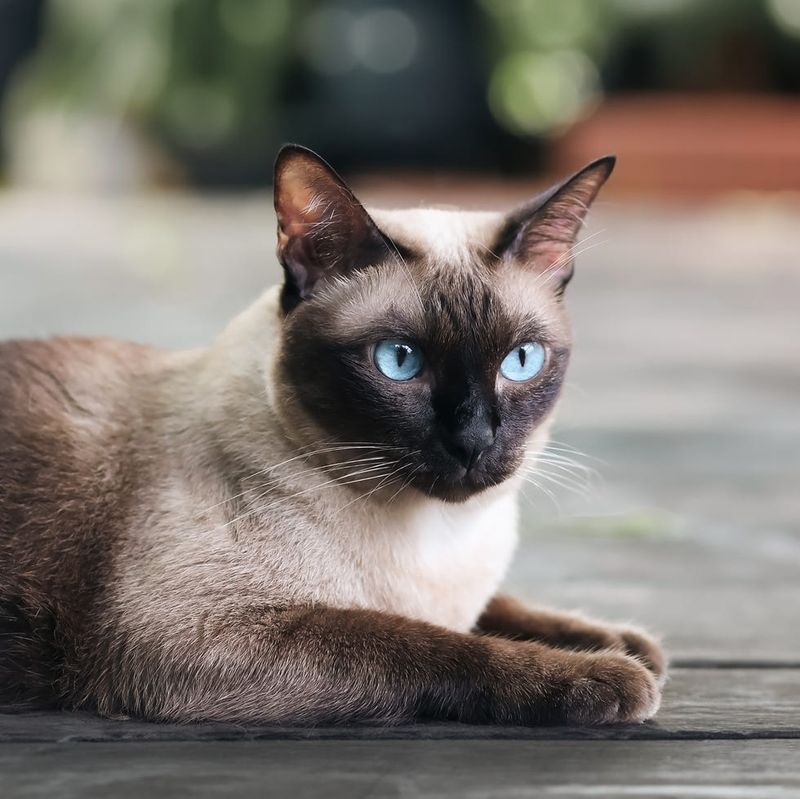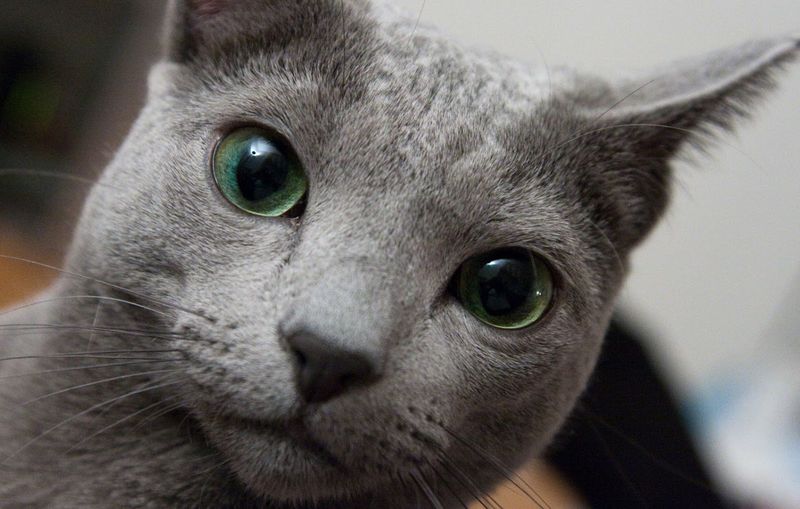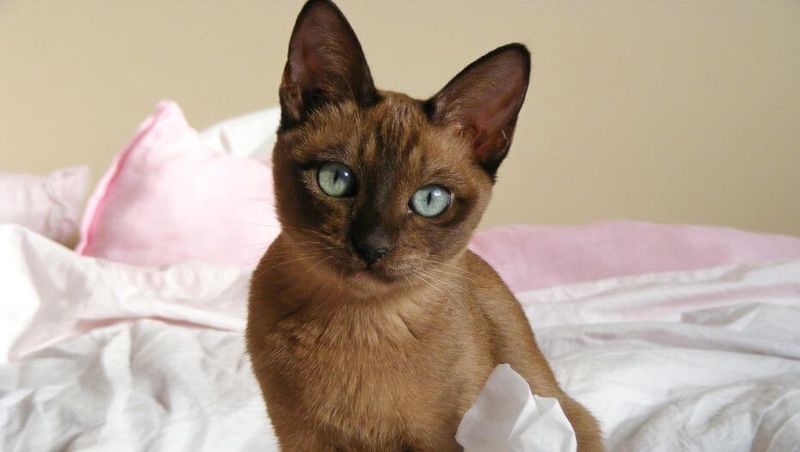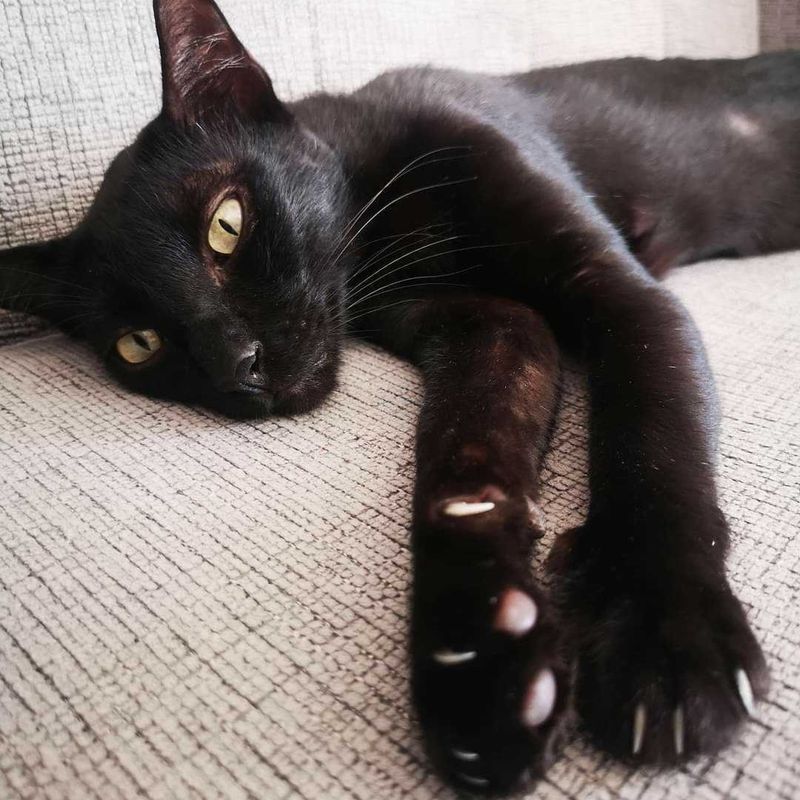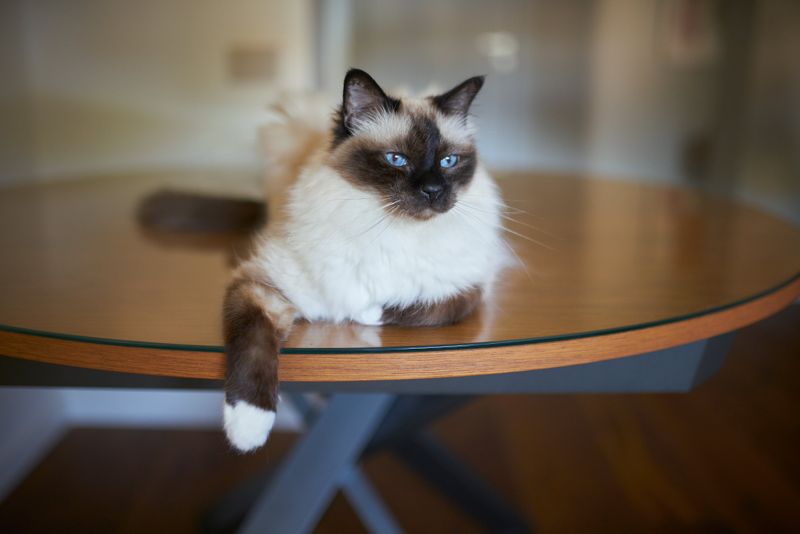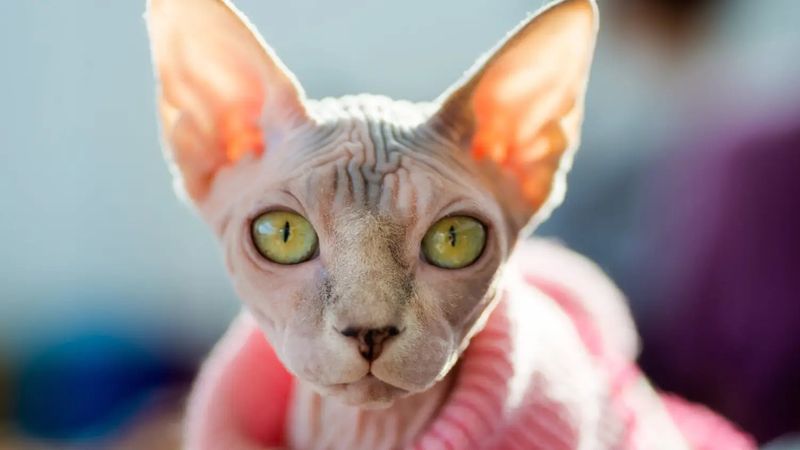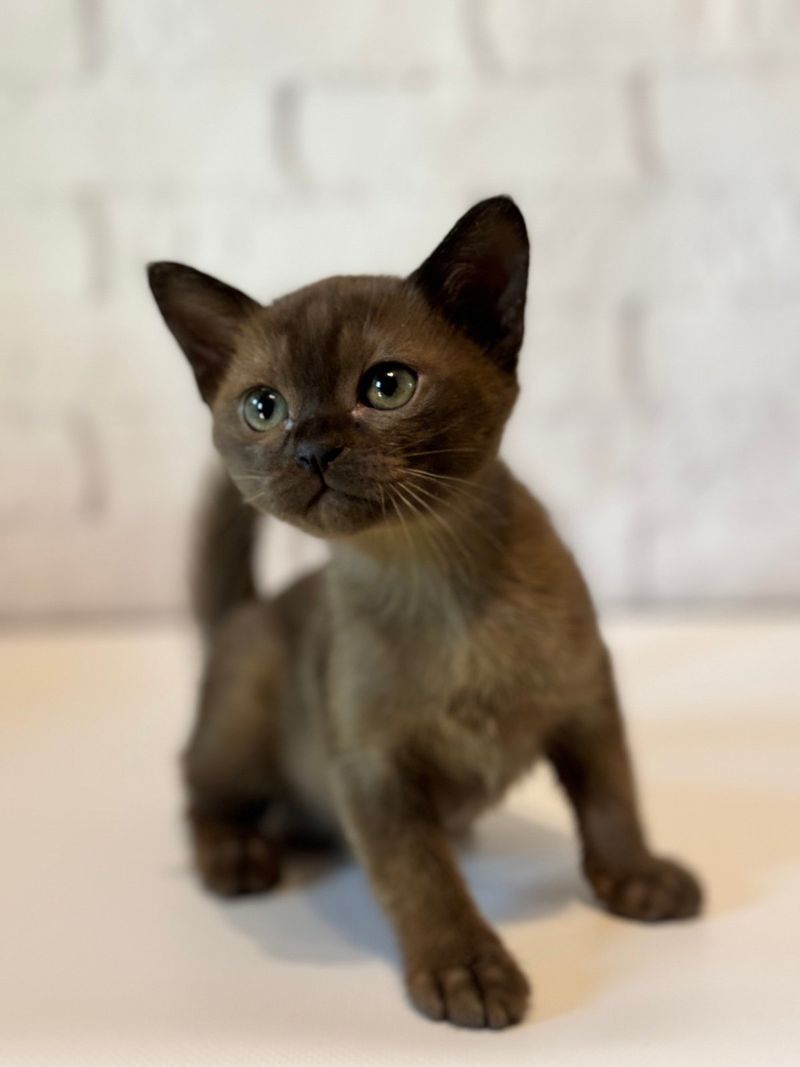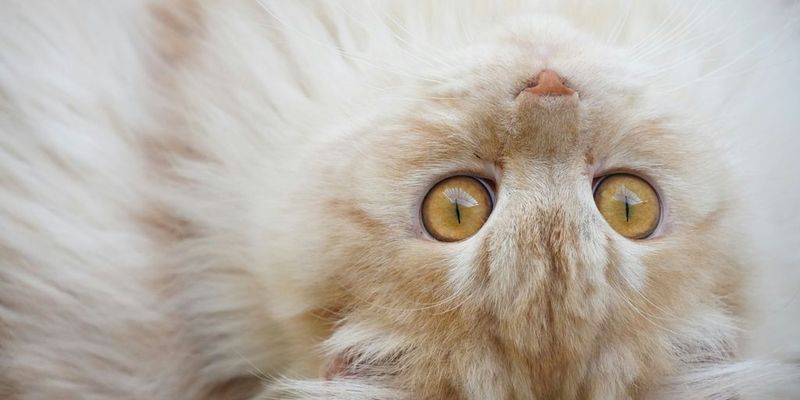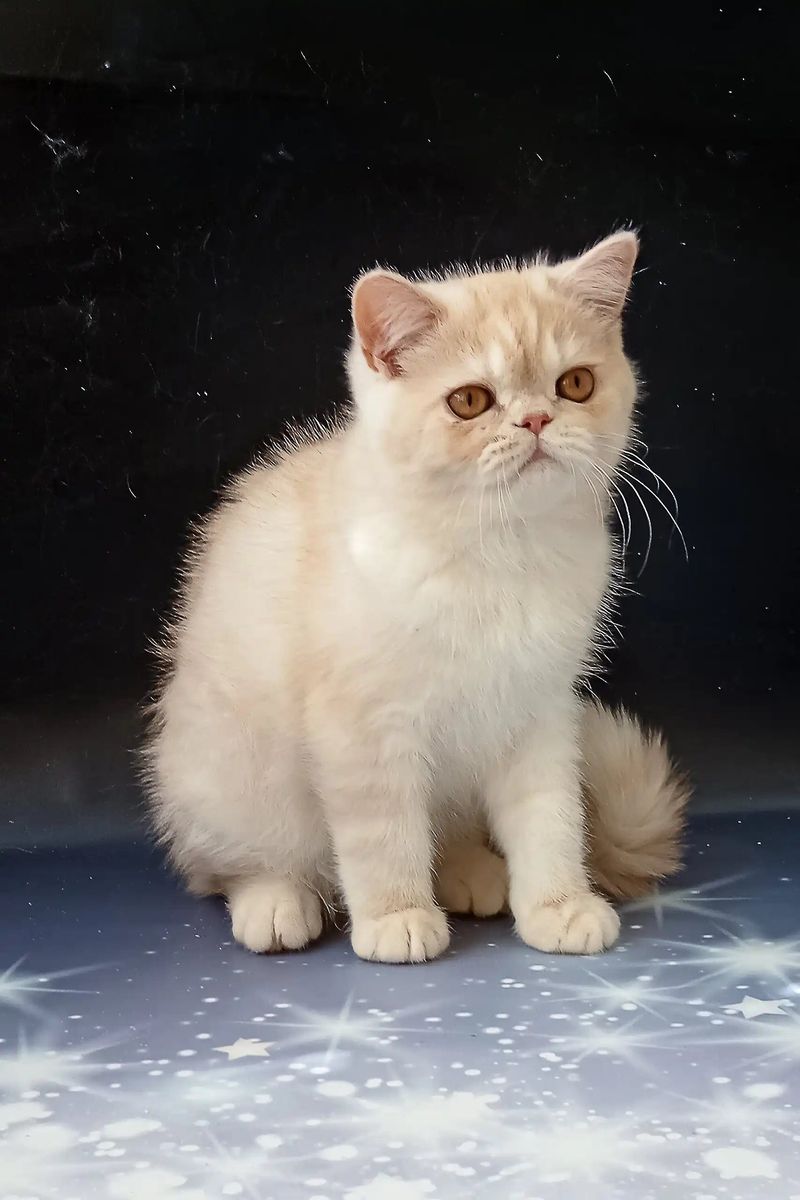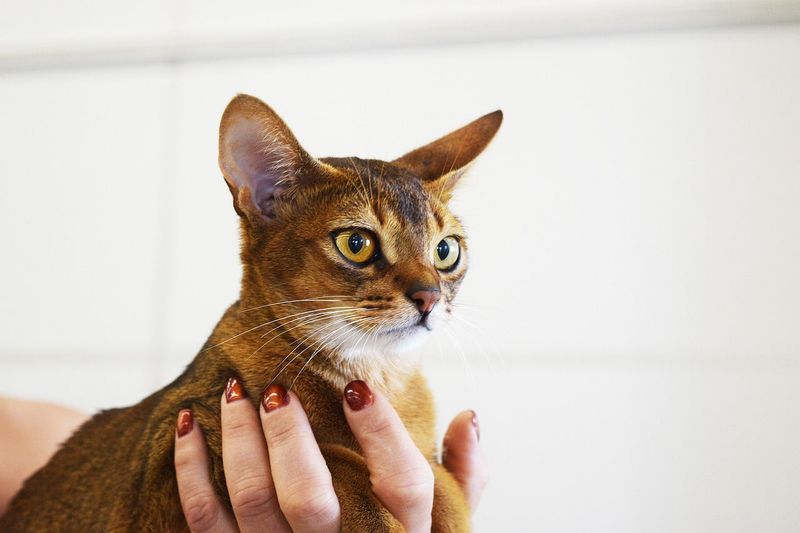📖 Table of Content:
Emotional support doesn’t always come in the form of words—sometimes it has whiskers, soft fur, and a gentle purr. While cats are often seen as distant, many breeds form strong emotional bonds with their humans. Their quiet companionship can be a steady source of comfort during life’s hardest moments.
Certain felines seem to instinctively know when something isn’t right. They’ll sit close, follow from room to room, or simply rest beside you in silence. This kind of presence can ease feelings of loneliness, anxiety, or emotional fatigue.
Some cat breeds are especially in tune with human emotions, offering affection without pressure. They don’t demand constant attention but are always there when needed most. For those seeking quiet, reliable comfort, these cats can be the ultimate late-night companions through work, stress, or heartbreak.
1. Ragdoll
Ragdolls earned their name from their tendency to go limp when picked up, much like a child’s ragdoll toy. These blue-eyed beauties are known for their almost dog-like loyalty, following their humans from room to room without being demanding.
During tough times, a Ragdoll provides silent support by simply being near you. They sense emotional distress and respond by offering their soft, substantial presence.
Their calm temperament makes them excellent therapy cats. Weighing between 10-20 pounds when fully grown, these gentle giants offer substantial comfort without overwhelming energy, making them perfect companions during periods of grief or recovery.
2. Maine Coon
Gentle giants of the cat world, Maine Coons combine impressive size with remarkable emotional sensitivity. Their chirps and trills create a special language between you and them, offering comfort without demanding attention.
Maine Coons possess an uncanny ability to sense emotional shifts. When sadness descends, these intuitive felines often appear at just the right moment, their substantial warmth against your side acting as a living, purring heating pad for the soul.
Despite their wildcat appearance with tufted ears and lynx-like features, Maine Coons display extraordinarily gentle personalities. Their patient nature makes them ideal companions during long periods of recovery or grief.
3. Scottish Fold
With their distinctive folded ears and round owl-like faces, Scottish Folds seem perfectly designed for emotional connection. Their expressive eyes watch your every mood change with remarkable attentiveness, creating a sense of being truly seen during difficult times.
Unlike more energetic breeds, Scottish Folds offer a balanced presence – neither too clingy nor too distant. They excel at matching your emotional state, becoming more subdued when sensing your need for quiet companionship.
A Scottish Fold’s tendency to sit with paws tucked under (the famous “loaf” position) beside you rather than on you makes them perfect companions for those who need emotional space while still craving presence.
4. Siamese
Famous for their striking blue eyes and musical voices, Siamese cats refuse to let you suffer in silence. Their talkative nature serves a purpose during difficult times – filling empty spaces with gentle conversation when human words fail.
Siamese form extraordinarily strong bonds with their people. They’ll follow you throughout the house, keeping watchful eyes on your emotional state and offering their sleek, warm bodies as comfort during moments of distress.
The ancient Siamese breed once kept Thai royalty company, and that regal sense of duty extends to caring for their human companions today. Their intuitive understanding of human emotions makes them sensitive enough to know when to cuddle close and when to simply maintain a reassuring presence nearby.
5. Russian Blue
Russian Blues possess an almost supernatural ability to sense emotional distress. Their short, dense silver-blue coats feel like plush velvet against tear-stained cheeks, offering tactile comfort during difficult moments.
Reserved with strangers but deeply devoted to their chosen humans, Russian Blues offer loyalty without demanding constant interaction. They excel at providing what therapists call “silent presence” – the art of being there without requiring conversation or explanation.
These intelligent cats learn your routines and preferences with remarkable speed. A Russian Blue quickly identifies your comfort spots in the home and creates a protective presence there, appearing almost magically when your emotional state shifts toward sadness or anxiety.
6. Tonkinese
Born from crossing Siamese with Burmese cats, Tonkinese inherit the best emotional support qualities from both parent breeds. Their moderate vocalization means they’ll check in with gentle chirps rather than demanding conversation when you’re feeling low.
Tonkinese possess remarkable emotional intelligence, often described as “people cats” for their ability to read and respond to human feelings. They offer playful distraction when appropriate or quiet companionship when sensing your need for stillness.
Unlike some breeds that demand center stage, Tonkinese balance independence with attentiveness. They’ll curl up beside you during difficult times without making their presence feel like another responsibility, creating the perfect emotional support dynamic for someone navigating grief or depression.
7. Bombay
Bombay cats, with their sleek black coats resembling miniature panthers, bring a special kind of comfort to difficult days. Their warm bodies seem to absorb negative energy, while their tendency to burrow under blankets creates a cocoon of healing during times of emotional distress.
Despite their striking appearance, Bombays possess surprisingly gentle temperaments. They combine the perfect balance of playfulness to distract from sorrow and calmness to accompany quiet reflection.
Bombays form intense bonds with their humans, often selecting one special person as their focus. This loyalty translates to remarkable sensitivity during tough times – they’ll adjust their behavior to match your emotional needs, becoming quieter and more attentive when sensing your sadness.
8. Birman
Known as the “Sacred Cats of Burma,” Birmans have a legendary history as temple companions. Their serene nature offers quiet support during emotional turmoil, as if they carry centuries of calm within them.
White-gloved paws move silently across rooms as they check on their humans throughout the day. Birmans balance attention-giving with respect for personal space – they’ll stay close without smothering you with affection.
Unlike more demanding breeds, Birmans communicate their support through gentle head bumps and soft purrs rather than insistent meows. Their medium-length silky coats provide therapeutic comfort during petting sessions, which they patiently endure even when you need extended contact during difficult days.
9. Sphynx
Sphynx cats lack the traditional furry comfort of other breeds but compensate with extraordinary body heat and unmatched affection. Their hairless bodies radiate warmth that feels therapeutic against the skin during times of emotional distress.
Born without protective fur, Sphynx cats seek physical closeness for their own comfort, creating a mutually beneficial healing relationship. They’ll drape themselves across your neck like a living scarf or curl against your chest where their purrs create vibrations that research shows can reduce stress hormones.
Sphynx owners often describe an almost supernatural empathy in these unusual cats. Their constant body contact offers the skin-to-skin comfort that humans instinctively need during grief – similar to how we comfort infants through physical touch.
10. Burmese
Playful yet deeply intuitive, Burmese cats are well-suited for emotional support. Their soft, silky coats—often a rich brown—provide tactile comfort that helps reduce tension during overwhelming moments.
Historically bred as temple companions, Burmese carry an ancient wisdom in their gold-colored eyes. They seem to understand human suffering on a deep level, adjusting their normally playful demeanor to match your emotional state.
Among cat breeds, Burmese stand out for their unusual desire to make direct eye contact with their humans. This connection creates powerful bonding moments during difficult times, as their steady gaze communicates understanding without requiring words.
11. Persian
Persian cats bring an aura of tranquility to any environment with their slow, deliberate movements and quiet demeanor. Their long, luxurious coats provide therapeutic sensory stimulation during petting sessions, while their soft purrs create sound therapy that can lower blood pressure during anxious moments.
Unlike more active breeds, Persians excel at stillness – a quality that becomes invaluable during times of emotional processing. They’ll sit beside you for hours without demanding activity or attention, creating space for necessary reflection.
Persians communicate primarily through slow blinks and gentle head bumps rather than vocalizations. This silent language creates peaceful companionship during times when human conversation feels overwhelming.
12. Exotic Shorthair
With Persian-like features and easier grooming needs, Exotic Shorthairs are affectionate companions with a calming presence. Their round faces and soulful eyes seem to offer quiet reassurance when it’s needed most.
Often described as having “dog-like” loyalty, Exotic Shorthairs develop deep bonds with their humans. They notice subtle changes in your emotional state, often appearing at your side before you’ve even realized your mood has shifted.
Their moderate activity level provides the perfect balance of distraction and companionship during grief. They’ll engage in gentle play when appropriate but excel at simply being present, their solid, warm bodies providing comfort through physical proximity during the darkest emotional days.
13. Abyssinian
Abyssinians offer a different kind of emotional support through their graceful energy and subtle attentiveness. When grief threatens to trap you in isolation, these ticked-coat companions provide gentle encouragement to remain engaged with life.
Unlike more sedentary comfort cats, Abyssinians balance periods of active play with moments of connection. They sense when to invite interaction through a tossed toy and when to simply rest their warm bodies against yours in quiet solidarity.
Abyssinians communicate through body language rather than excessive vocalization. Their expressive ears and tails create a silent dialogue that respects your emotional space while maintaining connection, offering the perfect companionship for those who find constant attention overwhelming during difficult times.
